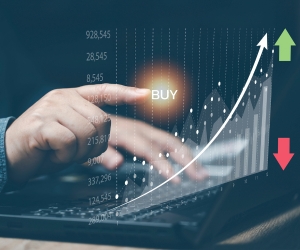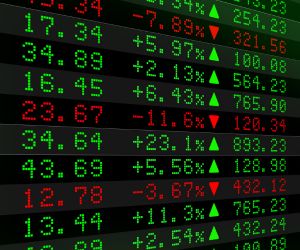GameStop is a well-known retail company specializing in video games, gaming products, and consumer electronics. It is listed on the New York Stock Exchange (NYSE), a crucial platform for players in the retail industry. So, is it a good investment? Are there ups and downs? What investment strategy should I use with the stock? This article will answer these questions and more.

Steps to Invest in GameStop (GME)
Research and Analysis:
GameStop (NYSE: GME) is a video game and electronics retail company that became famous for its extreme volatility due to social media speculation and the "meme stocks" phenomenon. Before investing, review its financial reports, revenue evolution, changes in its business model, and the demand in the video game market. Additionally, consider the sentiment of the investor community, especially in forums like Reddit and X (Twitter).Opening an Investment Account:
To trade GME, you need an account with a broker that has access to the NYSE. Since it is a highly volatile stock, choose a broker that offers risk management tools, such as stop-loss orders and trailing stops, to protect your investment. You will typically be asked for identification and proof of address for verification. Compare fees, trading platforms, and the service offered by each brokerage to choose the one that best suits your needs.Define the Investment Strategy:
GameStop is not a traditional value or growth stock, but is influenced by speculative trading. There are two main approaches for investing in GME:
- Short-term trading: Due to its extreme volatility, many traders look for opportunities in rapid price movements using strategies like scalping or momentum trading.
- Long-term investment: Some investors believe in GameStop's digital transformation and its potential as a technology company, but this strategy involves higher risk due to uncertainty in its business model.Execution and Monitoring:
Since GME is a speculative stock, it is essential to monitor social media activity, movements of large investment funds, and market volatility. Additionally, keep track of quarterly earnings announcements and any company restructuring plans.Portfolio Diversification:
GameStop is a high-risk asset, so it is advisable not to allocate a large portion of the portfolio to it and to diversify with more stable company stocks or technology and gaming ETFs. Alternatively, ETFs that include video game stocks, such as the VanEck Video Gaming and eSports ETF (ESPO), can provide exposure to the sector without relying on a single company.
SWOT Analysis of GameStop as an Investment
GameStop is an iconic company in the video game and specialized digital entertainment retail sector. This SWOT analysis examines its internal and external factors in a transforming market.
Strengths:
Iconic brand: GameStop is a recognized brand in the video game industry, with a loyal customer community.
Experience in specialized retail: Its focus on entertainment products allows it to offer a differentiated and specialized offering.
Capacity for adaptation: It has begun transformations in its business model towards e-commerce and new digital services.
Weaknesses:
Dependence on physical format: Traditional in-store sales have been its strength, but now it faces the challenge of digitalization and e-commerce competition.
Reduced profit margin: Price competition and pressure from digital distributors can affect its margins.
Challenges in digital transformation: The transition to a more digital business model involves risks and high investment costs.
Opportunities:
Growth of the online market: The expansion of e-commerce and new digital consumption habits offer opportunities to diversify its business model.
New products and services: The incorporation of subscriptions, digital collectibles, and other services can open new revenue streams.
Strategic alliances: Collaborating with video game developers and streaming platforms can enhance its digital offering.
Threats:
Change in consumption habits: The preference for digital downloads and streaming may reduce the demand for physical products.
Online competition: Intense competition from online sales platforms can erode market share.
Volatility of the video game market: Volatility in the gaming industry can affect demand and product prices.
What is an International Stock Broker?
An International Stock Broker is the entity (or platform) that allows you to buy and sell shares of companies listed on stock exchanges in various countries around the world. Unlike a local brokerage, the main focus of International Brokers is to offer access to global markets, such as the United States, Europe, or Asia.
Why do we need an International Stock Broker?
Investing in international stocks can be an excellent way to diversify your portfolio, as it gives you the opportunity to participate in the growth of economies and sectors worldwide. However, operating in global markets is not as straightforward as doing so in the local market: it requires specific knowledge, compliance with international regulations, and the use of advanced trading platforms.
An International Stock Broker brings together all these investment opportunities in one place and allows you to access different exchanges and trading conditions, in exchange for a commission.
Examples and Comparisons:
Several well-known International Stock Brokers include Interactive Brokers, eToro, TD Ameritrade, and Saxo Bank, among others. Each offers trading platforms with particular features and commissions that vary according to the service. Some stand out for providing market analysis and advisory services in multiple languages, while others may offer more competitive transaction costs or social investment tools. These details allow you to choose the option that best suits your needs and investor profile.
Regulatory and Security Aspects
It is essential that the International Stock Broker you choose is regulated by recognized entities in the country where it operates, such as the U.S. Securities and Exchange Commission (SEC) in the United States, the Financial Conduct Authority (FCA) in the United Kingdom, or the Securities and Exchange Commission (CVM) in Brazil, among others. This oversight ensures that the broker complies with strict security and transparency standards, giving you greater confidence when investing your money.
How Do Brokers "Connect" to International Markets?
Through agreements with foreign stock exchanges and the use of advanced technological platforms, International Stock Brokers process the buy and sell orders placed by their clients. They arrange the transactions based on price, order of arrival, and other parameters, charging a commission when the operation is executed. This technological infrastructure allows operations to be carried out quickly and securely, facilitating real-time monitoring of your investments.
In conclusion, an International Stock Broker is your gateway to the world's most important stock markets. Thanks to its regulation, trading platforms, and knowledge of global markets, you can diversify your portfolio and seek growth opportunities in different sectors and countries.





